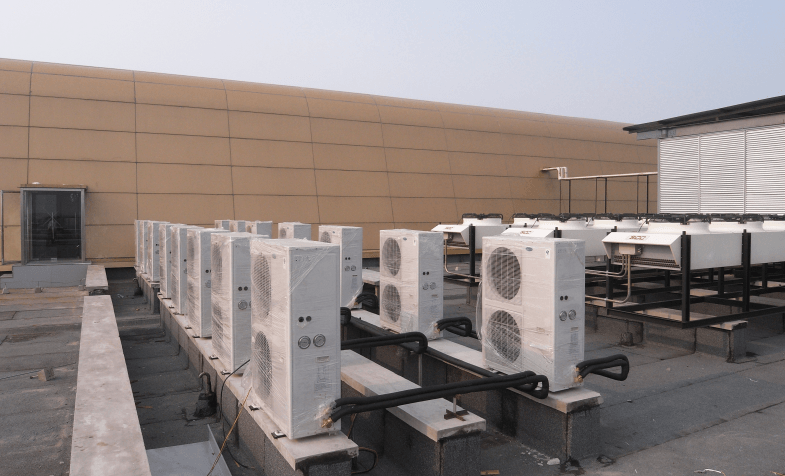In the diverse world of commercial refrigeration, the condensing unit plays a pivotal role in ensuring the proper functioning of refrigeration systems. CNAU, a leading provider of innovative refrigeration solutions, understands the importance of maintaining these units to ensure their longevity and performance. This comprehensive guide offers valuable maintenance tips for refrigeration condensing units, essential for businesses that rely on cold storage systems, including those in the food service industry, industrial laboratories, and electronic manufacturing.
A refrigeration condensing unit is a critical component of any refrigeration system, responsible for removing heat from the storage space and expelling it into the external environment. CNAU's advanced refrigeration units are designed with simplified control systems, making them highly efficient, energy-saving, and easy to install and maintain. These units are versatile and can be used in various applications where temperature control is crucial.

The condenser coils play a critical role in heat dissipation in refrigeration units. Over time, dust, dirt, and other debris can build up on these coils, impairing their efficiency. This accumulation acts as an insulator, reducing the coils' ability to release heat and causing the system to work harder, which can lead to increased energy consumption and potential overheating. Regular cleaning of the condenser coils, ideally every three to six months, is vital to maintain the system’s efficiency. This can be done using a soft brush or specialized cleaning solutions designed for HVAC systems, ensuring that all dirt and debris are carefully removed without damaging the coils.

Refrigerant is the lifeblood of any refrigeration system, and its level needs to be maintained for the system to function effectively. Low refrigerant levels can significantly impact the unit's cooling efficiency, leading to higher energy usage and increased wear on the compressor. Over time, this can result in costly repairs or even the need for a complete system replacement. It is essential to regularly check refrigerant levels and look for signs of leaks, such as oil residue around connection points. Qualified technicians should address any discrepancies or leaks, ensuring that the system is charged with the correct amount of refrigerant according to the manufacturer’s specifications.
Air filters are crucial for maintaining clean air flow through the refrigeration unit. They trap dust, lint, and other airborne particles, preventing them from entering and damaging the system. However, as filters capture more debris, they can become clogged, which restricts airflow and reduces the system’s efficiency and effectiveness. To avoid these issues, it is important to inspect air filters regularly – typically every month – and replace them as needed. Using high-quality filters and ensuring they are the correct size and type for the unit will further enhance system performance and air quality.

Regularly monitoring the temperature and pressure readings of your refrigeration unit is an effective way to identify potential issues early on. Abnormal readings can be indicative of various problems, including refrigerant leaks, compressor malfunctions, or blockages in the system. By keeping a close eye on these readings and comparing them to the manufacturer’s recommended levels, you can quickly detect and address issues before they escalate into major problems.
Proper airflow is essential for the efficient operation of refrigeration condensing units. Blocked or restricted airflow can cause the unit to work harder than necessary, reducing efficiency and potentially leading to overheating and system failure. It is important to regularly check the area around the unit, ensuring there is adequate space for air to circulate freely. This includes keeping the area clear of debris, vegetation, or storage items that might block vents or air intake areas. Additionally, ensuring that the unit is level can help maintain proper airflow and system efficiency.
CNAU's refrigeration condensing units are designed with innovative features that make maintenance easier and more efficient. Our units come with user-friendly control systems, allowing for easy monitoring and adjustment of settings. The high-quality components used in our units enhance durability and reduce the frequency of repairs.
Understanding that different industries have diverse refrigeration needs, CNAU offers customized refrigeration solutions. Whether it's for food storage, pharmaceuticals, or industrial applications, we can tailor our units to meet specific temperature and space requirements.
In addition to providing maintenance-friendly designs, CNAU's refrigeration units are built with energy efficiency in mind. By optimizing the performance of our units, we help businesses reduce their energy consumption and environmental impact.
At CNAU, we provide comprehensive support and services, including installation, technical consultation, and after-sales service. Our team of experts is always ready to assist with any maintenance needs, ensuring your refrigeration systems function smoothly and efficiently.

Proper maintenance of refrigeration condensing units is essential for ensuring their longevity and optimal performance. By following these maintenance tips and leveraging the advanced features of CNAU's refrigeration units, businesses can maintain efficient and reliable refrigeration systems. Visit https://www.cnauc.com/ to learn more about our products and how we can help you with your refrigeration needs, ensuring your business stays cool under any condition.